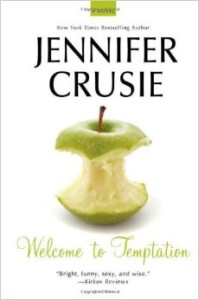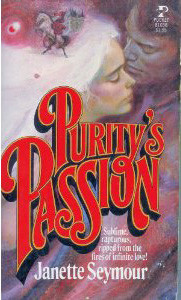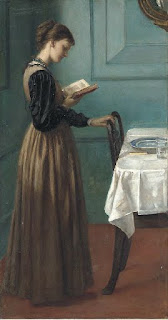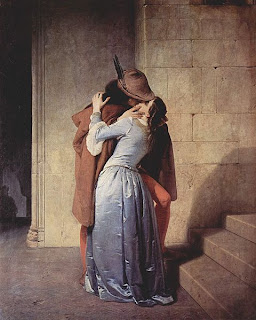I’ve been thinking a lot about Gail’s post last week “About Those Dukes”, and also about this this article in the Smithsonian Magazine, “Why Can’t Romance Novels Get Any Love?”
The article talks about Germaine Greer’s “feminist call to arms”, The Female Eunuch (1970) in which:
“Greer was skewering the authors of romance novels, and the readers who made them bestsellers, suggesting they were submitting to nothing short of serfdom to their heaving, rippling fictional heroes: alpha males with giant pectorals, important lives, patriarchal views and very little interest in love…until just the right petite, witty heroine comes along.”
I love the idea that literary scholars like Sarah Frantz Lyons, who started the International Association for the Study of Popular Romance, want romance to get the same attention from scholars as other popular genres such as mystery and science fiction.
“We’ve been talking about this for 30 years: since the 1980s at least, it’s been about empowerment versus oppression. Is this narrative empowering or oppressive to women?” she says. “We need new approaches to romance fiction.”
 It’s the sort of thing Jennifer Crusie has been saying, probably even before this 1998 article “Defeating the Critics: What We Can Do About the Anti-Romance Bias”.
It’s the sort of thing Jennifer Crusie has been saying, probably even before this 1998 article “Defeating the Critics: What We Can Do About the Anti-Romance Bias”.
“But romance fiction insists that women be front and center, demonstrating over and over again that women can solve their own problems. Reading that kind of narrative empowers women and therefore attacks the basic assumption of patriarchy.”
I love this statement, and this is part of why I write romance. (I hope Crusie’s smart and sexy books are among those that will be studied.)
I’ve also read romance novels that tapped into fantasies that may or may not work with the idea of women solving their own problems.
I suspect part of the appeal of Duke and billionaire stories is the fantasy of never having to work a boring job or worry about money again. For personal reasons, it’s not a fantasy that appeals to me, but I can understand it. When I’ve been too busy taking care of others to care for myself, I daydream about tropical vacations where all I have to do is snorkel with pretty fish, get massages, and sip umbrella drinks. But I don’t really need a life of luxury. I need to rearrange my life so there’s more time for self-care on a regular basis. I’m working on that, but the vacation fantasies help me get through bad days. Likewise, a woman whose job is unpleasant or unrewarding, or who is struggling to make ends meet, has every right to enjoy an escapist story, even though she may also be actively trying to improve her situation.
I feel the same way about domineering, alpha heroes and “forced seduction” stories. Personally, I find some heroes cross the line from “alpha” to “abuser” and especially if I don’t see a real transformation, the story isn’t going to work for me. It is very, very important to me to see that at least by the end, the hero treats the heroine as a real person and an equal, neither domineering nor putting her on a pedestal. But each reader has the right to decide for herself which stories work for her. Perhaps some women can’t distinguish between the fantasy of being conquered and how healthy relationships work, but that’s no reason that others should not enjoy those books.
I do not care for censorship. What I do believe in is dialogue. Dialogue is good. Criticism is good. I’m thinking about all the conversation about Fifty Shades of Grey. I didn’t participate because I haven’t read it, but from the articles and blogs I skimmed, I could see there were intelligent points made. I believe we should all discuss, criticize, even argue about the books if we want, but judging people personally for their reading choices is just an exercise in ego.
Which gets me back to the academic study of the romance genre. Scholars will likely find many stories featuring strong heroines and the development of healthy relationships.
They’ll also likely read some of those old contemporaries I used to find around the house as a child, where the nurse always marries the doctor and the secretary gets the boss. (And in those old stories there were never any female doctors or bosses.)
 Scholars may also include books like the one in this review on the Smart Bitches/Trashy Books site: Purity’s Passion. A quote, just to give you an idea:
Scholars may also include books like the one in this review on the Smart Bitches/Trashy Books site: Purity’s Passion. A quote, just to give you an idea:
We’re at the midpoint of the book, and let us tot it up: Purity has had consensual sex twice, been raped by six men (two of them multiple times), and nearly raped by a seventh.
So I don’t think a broad study of the romance will lift the genre as a whole to respectability. That’s not important to me. Although some romance novels are complex and beautifully written, not everything needs to be literary. Although I prefer to read and strive to write romances that end in what I think are healthy relationships, I do not deny others the right to read and write what speaks to them.
What I do hope is that the study results in some good discussion. Maybe some of those who haven’t yet tried a romance will do so, at least out of curiosity.
What do you think? Which romance authors or books do you think are most feminist, or most literary? Any favorite guilty pleasures you’d like to share?
Elena




